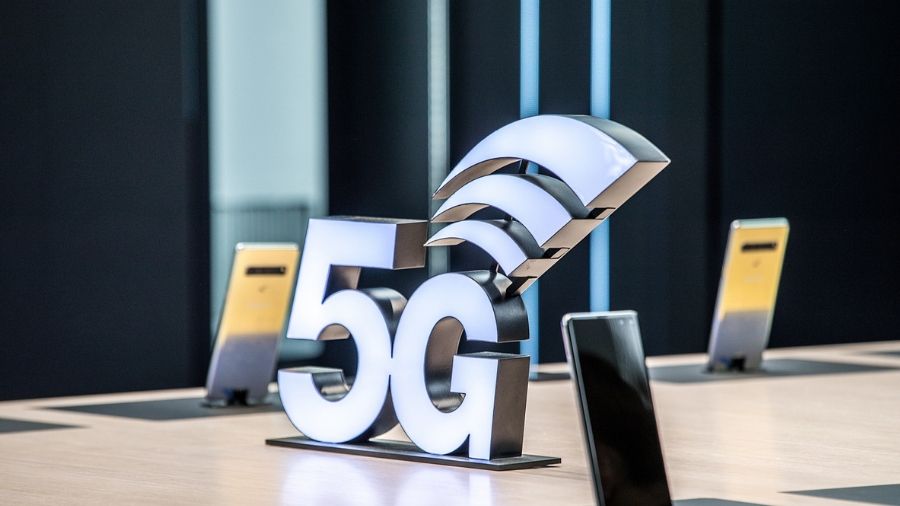Call me crazy! Here is why I am shunning 5G for 3G.... at least for now
Never mind speed, give us flawless coverage and true unlimited data

Today, the first 5G network has been switched on in a few cities across the UK and yet not only do I not plan to embrace it anytime soon, I've also taken the bewildering decision to move on to 3G.
A few days ago, I was at an event in central London for the launch of a major smartphone. Ironically, there was no network connectivity, voice or data, and I was not the only one impacted by this. Several people I spoke to at the event were also affected, despite being on different core networks. I am not using an MVNO (Mobile Virtual Network Operator) and neither were they.
The difference is that I was probably the only one on 3G. I decided to “downgrade” to 3G a few months ago after having experience systematic notspots, mini Bermuda Triangles where phone signal disappear for one reason or another. That could be on a bus stop, on the motorway and everywhere in between.
When I was on 4G, I’ve counted seven of them during my commute. Now that I am on 3G, I am down to four. Sure, 4G networks get updated and circumstances change but you will almost always see that network coverage mentions UK population rather than surface area, which assumes that people stick to one particular place when in fact they don’t.
Plus 3G coverage will almost invariably be higher, even by a fraction of a percentage, compared to 4G. Research shows that the 4G coverage of some networks is as low as 76%. So I decided to switch from 4G to 3G as a test and have stuck to it ever since. As an analogy, switching to 4G means that I am on a slower lane but that lane is better services and less congested as well. So ironically, I may end up downloading a file faster than 4G.
- 5G in the UK: everything you need to know
- Best mobile hotspots for 3G, 4G and 5G in 2019
- These are the 5G phones currently available on the market
3G = Better battery life?
There’s also anecdotal evidence that my phone’s battery life has improved. That could be linked to the fact that my smartphone is now doing fewer so-called handovers on 3G, where you move from one base station to another. This theory hasn’t been proven yet though.
I don’t expect a lot of our readers to have embraced my older-is-better shift but the same mindset could be what prevents them from moving to 5G altogether, at least initially. You see, the marketing lingo surrounding 5G is heavily biased towards speed and yet, you are unlikely - as a user - to see the same benefits from say, moving to 3G to 4G.
Sign up to the TechRadar Pro newsletter to get all the top news, opinion, features and guidance your business needs to succeed!
Average landline speeds in the UK are likely to have tripled over the past five years to about 50Mbps thanks partly to the rollout of fibre networks nationwide. 4G speeds however have stalled; the latest OpenSignal report published in April 2019 showed that EE posted the fastest average download speed at 32.5Mbps. O2, the slowest, barely touched 16Mbps, a far cry, in both cases, from the theoretical maximum of 150Mbps that LTE/4G was supposed to bring. My 3G connection near Baker Street, in comparison, reached 6Mbps.
EE, the current 4G champion, delivers a maximum theoretical download speed of 60Mbps nationwide with 90Mbps in selected areas, that is seven years after its launch. It claims that customers on its initial 5G rollout will see speeds of up to 150Mbps although it does say that “some customers will break the one gigabit-per-second milestone on their 5G smartphones.”
Without picking up on EE, that’s the same network that launched a 300Mbps 4G trial in November 2013 with 400Mbps tests achieved in 2015 but both were never rolled nationwide. As a reminder, EE launched 4G at 21Mbps in 2012 but early 4G adopters were being promised speeds between eight and 12 Mbps.
5G will be a winner regardless
Don’t get me wrong, 5G will be a roaring success but for a vocal minority, often found outside the big cities, a good network is about great coverage, not just download speeds.It does matter at home or in a business as a single line services more than one user or device. Your smartphone caters only for you (and maybe for your smartwatch) and no matter how much we love 4K content on our TV, 4K on mobile is overkill especially as it ruins battery life.
Which brings us nicely to the issue of data allowance; streaming rather than downloading is what faster speeds are meant for and streaming consumes a lot of data. Sub-10GB data packages will not do on 5G and given how much of a premium 5G plans will carry, at launch, over current 4G ones, anything lower than 100GB is likely to be inadequate.
Eventually, I will move to 5G one day, but until coverage is sorted out, it won’t happen anytime soon.

Désiré has been musing and writing about technology during a career spanning four decades. He dabbled in website builders and web hosting when DHTML and frames were in vogue and started narrating about the impact of technology on society just before the start of the Y2K hysteria at the turn of the last millennium.